Violence is: isolation from cooperation in a conflict. Without presupposing both the clash of different intentions and coercion, we do not mean isolation and violence. The word ‘presupposition’ is no coincidence. If, for instance, I get angry to an object and punish it ‘violently’, it does not mean that the object really had any intention and that there really was a conflict ‘between us’; yet I still could have acted violently if I did presuppose our conflict and did ‘isolate myself from the object’. If, for example, someone wants exactly the same as I, but for whatever reason he/she pretend to resist and provoke my violence, then I do not really compel him/her to do anything and I do not really ‘force’ anything upon him/her, yet I still could have been violent in case I assume that I did force them. Violence is a type of conflict-management, an alternative to cooperation.
Isolation is revealed in the direct or indirect coercion, but not only isolation can appear in it. Someone who seeks cooperation can also be constrained to force an infant, a sick person, or an animal. Nonetheless, that someone is not violent as long as he/she is open to cooperate, and as long as he/she minimizes force as much as possible and is therefore unhappy with his/her forcing. Violence is always forcing, but forcing is not always violence.
The precondition of avoiding violence is cooperation, and the precondition of that is a cooperative relation, which is an essential equality. But what kind of equality can we speak about in a world where everything is different and there are no identical capabilities, skills, conditions and chances, where therefore we are not equal in anything, where inequality is the natural?
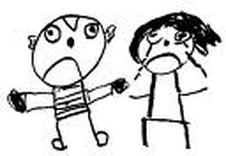
Equality is the mutual self-restriction and self-subordination to a mutual and universal value. This equality, however, is not a secondary condition, but the foundation of all things and the origin of all values, thereupon it is also a value itself, which reveals itself in the general will for collectiveness, universality, and values after all. Equality is also the purpose of any being that comes to realize the absolute, the unconditional measure, and the inter-connectedness. Equality is the self-extending self-restriction of the other-centered and caring being and also this being’s completion in others, and this equality’s theory and practice are already intentional and contemplated, since it is born from the comprehension and the processing of the directly appearing and the obvious inequalities.
The problem is that our natural equality does not appear directly in our social life and social practice, because the conflicts (opposing interests) throw it into the shade. It is not easy to identify the universality of the value-centered equality beyond the interest-centered sensual experience. Our opposing interests highlight exactly our differences and inequalities, mainly by our clashes and the success or failure gained at each other’s expense.
And to top it all, approaching social equality is also particularly difficult for the fact that not only complete inequality is nonfunctional and unacceptable, but is also the aim to measure everyone with the same measure (i.e. small, big, healthy, ill). Besides that, professionalism and the inequality of influencing others also collides with the subjective right of equality before the law when making decisions. Therefore it would not be fortunate to grant and would not be possible to guarantee any kind of right to anyone. Universal measures should therefore be used in such a way that they refer to everyone only in the proportion of their disadvantages, so that they were not universal measures after all.
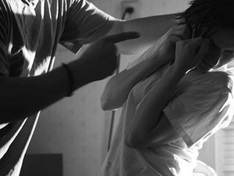
So where is social equality? Where is the alternative to violence?
We cannot pretend as if - within the framework of equality before the law - the philosophy of law, the theory of law and the legislation had not found elegant solutions to the proportionate limitation of rights and duties and of the social responsibilities. The problem, however, is not the theoretical subjective right to equality, but the unequal equality of the practically different performances and the qualitatively different people. If we realize that social equality is not possible without inequalities and that social justice is not possible without social competition, and furthermore, that we cannot speak of a progressive society without a hierarchy generated by that competition, only then can we come to feel the key importance of justful competing (fair play) that combines equality with the ranking of qualities in the solving of conflicts. Without competition the quality suffers, and in unjust competition everything suffers. The one and only alternative to violence is a fair play based competitive society.
Speaking about the alternative of violence, it is advisable to clarify the difference between pseudo and real alternatives. We solve all the conflicts by way of comparisons, but by what we compare and how we compare are not all the same. Based on the possible definitions of measuring (unmeasurability in chaos, measurability in order) and measure (arbitrary exepction, universal rule), there are four kinds of comparisons (consensus, violence, chance, logics).
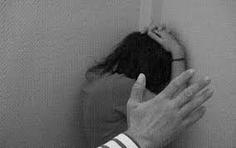
We use violence when we want to enforce our interests. In the case of a violent solution we decide upon a conceivable power and someone’s interest will ultimately prevail based on a relative superiority. The purpose of the violent solution is the isolating, raw enforcement of interests, regardless of them being right or wrong.
We rely on chance if we are concerned more about the risks than the issue itself, but we also rely on chance when even though we do not know the professional answer, we do not want to be aggressive with each other either. With a random solution we decide upon an inconceivable power and someone’s interest will ultimately prevail based on a universal, but relative superiority (luck).
And last but not least, the purpose of a logical solution is to find the appropriate (more approximate to truth), therefore more professional solution. The intelligent and peaceful beings compete with fair play for the right of decision, and therefore they solve their problems in equality, but also with professionalism - as much as they can. And yet there are still times when they happen not to know the right professional solution, so they cannot assess even the risks of the different versions, therefore they either ‘vote’ or ‘draw’, but by all means avoid violence.
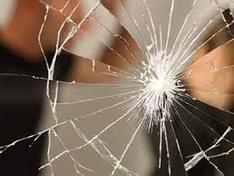
It is no coincidence that professions exist and the number of professionals specialized in solving particular problems along with their professional knowledge is growing. As a matter of fact, apart from the enforcement itself, no other problem can be solved by raw physical superiority. It would be all too bad if for instance an engineering or a medical issue were left to the strongest person or the majority of a village to solve. The alternative of solving a problem by violence or by profession is of course quite unromantic and provokes at least three objections.
(A.) Most problems do not have professionals or enough professional knowledge, and not even professionals know all the answers anyway.
(B.) An average earthly mortal cannot be a professional of all important matters.
(C.) People cannot and do not want to contemplate and decide rationally.
These obvious objections can be answered though.
(A.) Professionalism does not mean that there was a ready-made answer to every problem and that a perfect answer existed to each, but what it means in fact that we can only aim to find a logical answer and can only accept such an answer. Therefore every problem can be managed professionally - namely logically. We are absolutely aware of the fact that expert opinion is imperfect and temporal, while at the same time we know that it is optimal and progressive too. Professionalism does not know the solution to everything, but it is only professionalism that knows enough about solutions and searches them well enough.
(B.) The average earthly mortals learn more and more from the professionals and more and more technical knowledge becomes everyday knowledge from physics to psychology, from nutrition to sexuality. But even more important than the ‘average person’s’ technical knowledge is his/her logicality; and anyone can become an expert of any problem, whoever aims to be logical in the given issue.
C.) Well, this is indeed a serious objection against non-violence. We feel ourselves at home with the familiar and controllable forms of violence. Mankind does not want to be rational and would not even be even if it had to die because of that. We mix up the state of observations and experiences with the state of examination and discussion of observation and experiences and we play one off against the other. We do not want both and we do not search the place of both in our lives. In the state of observations an experience there is no place for theoretical-logical contemplation, but all the more necessary its place is in the examination and discussion of observations and experiences.
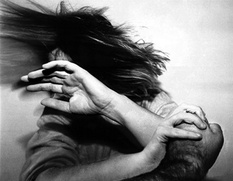
In our premature experiences violence justifies everything (both truth and falseness), and therefore we adopted violence as the ultimate criteria of truth. Even though nobody is right (has a logically contradiction-free point of view) just because he/she can push his/her own will through. On contrary to that, violence itself is self-contradicting: it regards relative superiority (force) as absolute superiority (truth).
The self-contradictions of ‘universal authoritarianism’, ‘universal discrimination’, ‘the value of valuelessness’, and the ‘principle of unprincipledness’ reveal that violence is disoriented, empty and irrelevant in itself. One self-contradiction of violence is that in the delight of the experienced superiority, the defeated is respected (valued) and disrespected (unvalued) at the same time. It is for this specific reason that some refuse violence because it is impossible to become valuable by triumphing over someone invaluable (‘I won’t get my hands dirty with you’). It is not worth mistreating anyone – whether they are ‘valuable’ or ‘invaluable’. Rejection, disrespect, and despise towards the other also evaluates my own fight and victory and ultimately evaluates myself. Everybody is worth only as much as the tasks and the opponents he/she chooses.
The essence of violence is that it is not merely the forcing of others, but the forcing, betraying, and underachievement of our own self by choosing our worse self. It is the dominance of our uncompassionateness, senselessness, and ignorance over our better self. It is a gradual obtuseness, an unsuccessful adaption and a failure. Violence is against ourselves.
As a matter of fact, do not even enjoy it truly. Our transient success does not eliminate the fact that we lost our spiritual balance, our inner peace and composure. Even though there are naturally pleasant forms of enforcement, but in those cases we are playful and cooperative with the others, therefore violence is not real, because it is self-limiting and self-restricting within the fundamental context of our benevolence (i.e. sport, sex, kidding).

The violence ultimately wanted in its self-expanding, which is the intentionality and deliberateness of selfishness makes someone unrestful, because everything selfish is depressingly value- and meaningless. Wanting violence is wanting sin, and we cannot forgive ourselves as long as we hold on to it, want it and wear it as the unforgiveable sin of ‘self-satisfaction in sinfulness’. Violence cannot be avoided if our consistency does not lead us to self-criticism. Self-satisfaction is violent in any case. The essence of violence and isolation is exactly the selfishness and self-satisfaction.
The essence of violence is immorality, which is even worse than ‘wrong’ morality. A person with ‘wrong’ morals still have morals (at least he/she does have morals and is consistent in them), it’s only that we do not like them. An immoral person, however, is inconsistent and unprincipled, in other words he/she propagates and exercises principles that rule out each other, therefore he/she ultimately puts him/herself above all principles. The reason why it is immorality and not ‘wrong’ morality that is connected with violence is that a person who puts him/herself above all principles is necessarily unpredictable, therefore unable to cooperate, and thus can only enforce his/her spontaneous interests violently.
It is also true the other way around. A person who accepts violence and rules out cooperation wants his/her own superiority over the truth. From each and every approach, violence is proportional to the restriction of logics, to inconsistency, to the enforcement of the unpredictably different ‘measures’, to unprincipledness and unscrupulousness, therefore ultimately to injustice and immorality. It becomes even clearer if we realize that the foundation of every kind of morality is truthfulness, which develops itself the seeking and following of universal lawfulness and in the equality within that lawfulness; and if we realize that violence, which sweeps aside lawfulness and which is ultimately not value- but interest-centered, stands against it.
The re-evaluation of violence-based values and morals is ultimately the transformation of a power struggle based society and culture. What sort of life form and approach is violence? What is the alternative of violence in thinking, spiritual life, morality, politics, and culture? Philosophy plays a determinant role in these questions, and within philosophy, it is the philosophy of sport that researches fair play and justice.
What makes the question of fair play become especially timely at the turn of the millenium is the fact that the matching of seriously unequal participants has by now become a vital problem. It is more and more urgent to think about the rights of the animals and plants, and to find justful competition that also involves children, disabled, women, and minorities. All this is just the tip if the iceberg though, because we also need to treat the norm-and lawbreaking ‘evils’ with fairness, simply because we must treat even the unfair fairly.
How?
We need to learn global fair play right now, when humanity has started to divide both genetically and culturally unconjugateably into subspecies. It is an everyday pedagogic experience in our school system that more and more young people are struggling with insurmountable disadvantages. We more and more often run into such complex problems that can be conceived by less and less people and that grabs the attention of less and less people longer than a passing moment. So all in all, how should the ‘inept’ compete with the ‘intelligent’, or the ‘useful’ with the ‘unuseful’? Who would define these categories and what sort of measures would measure them?
A society is incapable of living without social competition, but every kind of social competition has been unfair so far. The natural human beings are not uniform and naturally not equal. Each and every one of them, however, can rightfully expect that he/she will not be excluded from the definition of the rules of cooperation. Social equality is the equal chance of effectuating the natural inequalities, it is justice itself. The social inequality, namely the unequal chance of effectuating the natural inequalities, is equal to institutionalised violence, in other words equal to oppression. Let us repeat: the alternative of a society of violence can only be a ‘society of justful competition’.
The more humanistic conditions of a better future cannot be realized otherwise than in the new attitude of new generations, which presupposes a new education of new children. Therefore in the center of educational and socializing progress stands the socialization to competition (socialization to justfulness), namely the education of fair play and sport. Most unfortunately though, not the sport shapes society but the society shapes sport and there is no fair sport at present that could foster the next generations so that they can become fair and justful.
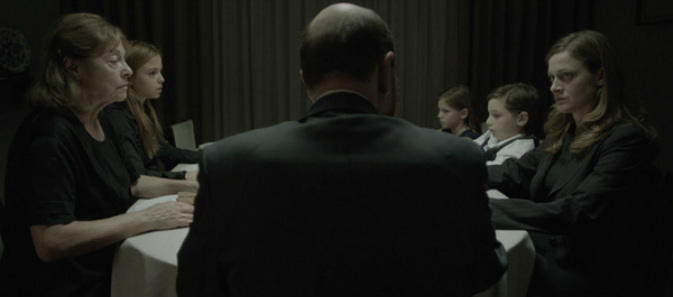
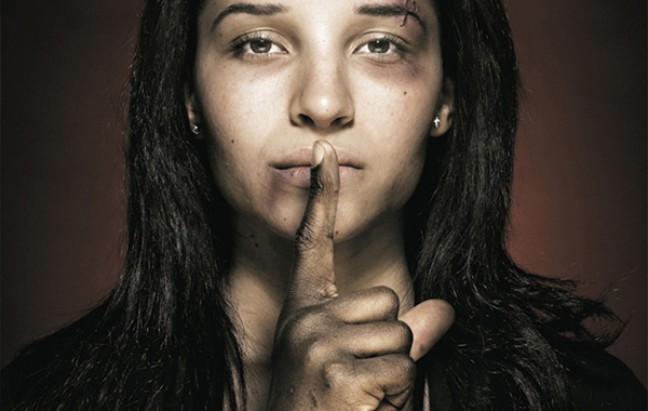
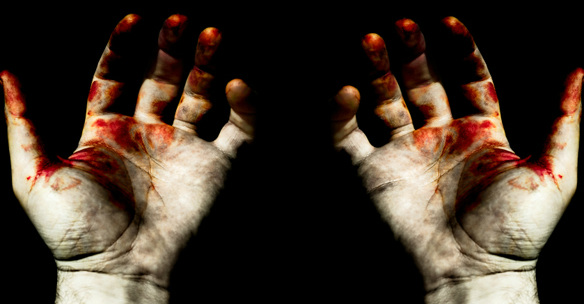
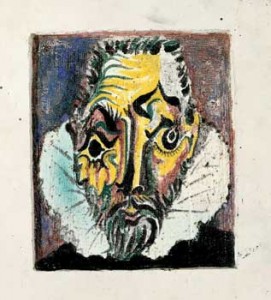
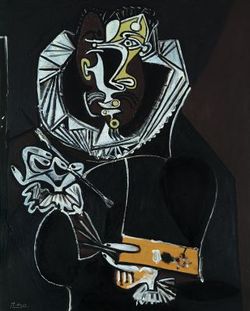
 RSS Feed
RSS Feed
